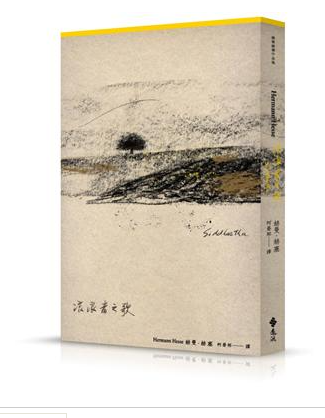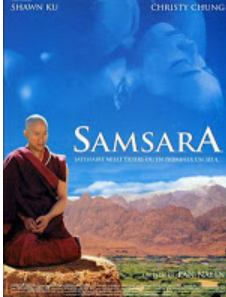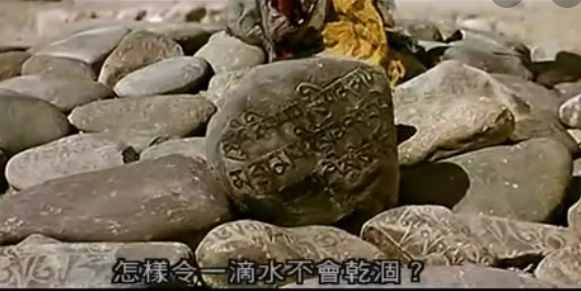Good Books Reread "Song of the Wanderer" to find your way

If I had to recommend a book that I could read over and over again, I would recommend the 1946 Nobel Laureate Herman Hussey's masterpiece "Song of the Wanderer." Maybe everyone is familiar with it, but reading it at different times will always have different feelings. "Song of the Wanderer" is not only a novel written by a poet, but also covers religion, philosophy and psychology. Therefore, whenever I revisit "Song of the Wanderer", if I read it with a simple and relaxed attitude like reading a story, I use the words The words are beautiful, natural and pure, but if you ponder their meaning, you will enter a self-heart washing, and repeatedly explore the way of life.
The Tao I say here is like the purpose of travel. If life is a journey, whether it is you with a ticket or me sitting in the seat, there is a reason for the journey: romantic people will say that seeing an unforgettable old friend from a previous life has a relationship; advocating utilitarianism Some people say that he pursues the ultimate in human beings and achieves success recognized by society; socialist people say that he is a screw in the big era, performing his own duties in the group. No matter what kind of choice it is, it is worthy of respect, but it needs to be implemented in a conscious state, because people are ultimately responsible for their own choices. However, sometimes we forget the reason for getting on the bus, and just hitch a ride with the crowd in a daze, but do not want to reach the end in a trance, so the idea of finding a way arises on the way.
I think "Song of the Wanderer" is also the author's journey of seeking the Tao. There are many famous book reviews, so I will only mention it briefly. Herman Hesse was born in a missionary family. As a highly sensitive child, he did not adapt to the education method of missionaries, and the family relationship was tense. He disappeared one night with a revolver at the age of thirteen, and became an adult. Divorce, war, death, and economic hardship gave him a deeper understanding of life, self, and suffering. He immersed himself in a lot of psychoanalytic theories, Eastern and Western philosophical theories, Eastern aesthetics, and religion. After modification, "Song of the Wanderer" was produced. I can't help but admire the translator Ke Yanzhu. The translation of "Song of the Wanderer" is a big project. The original text is written in German, and the content integrates a lot of Brahmanism and Buddhist terms. The translator himself has abundant literary literacy. Let the Chinese version read so beautifully and smoothly, following the poetic words of Hesse, the essence of Sanskrit.
The story tells the story of the young and intelligent Brahman Siddhartha. In order to pursue the truth, he escaped the suffering of Nirvana as soon as possible and left home to seek the Way. He first followed the ascetic monk, and used hunger and suffering to quench his mind. When he found that the ascetic practice is just to deviate from the self through pain, which is equivalent to shifting the goal, so he turned to the Buddha and asked, although he agreed that the Buddha was a Dzogchen , but also questioned whether true knowledge can be transmitted through language and knowledge? After all, understanding cannot be felt through language ; he thinks, before joining the world, how can we become detached, and how can we let go without being attached? Dyeing a vat, feeling the vulgar life, learning lust from famous prostitutes, and learning utility from businessmen, he is addicted to the joys of the world, but he finds all kinds of boring. One day, when he saw the reflection of his aging face in the river, he had the idea of ending his life. Until I meet the ferryman...
Siddhartha is the reflection of everyone. Most people are hesitant when they are young, questioning the regularity of exams, jobs, and marriages. When they are a little older, they pursue fame and fortune, and they are greedy for beauty, pleasure, and money. But in old age, they face self-doubt. , can not help but come from sadness. But don't be pessimistic because of this, because through the book, the ferryman indifferently imparts the endless wisdom of the river. Hesse has gently told us that this is life. Do things. After reading it, I can’t help but reflect. I pursue one goal after another in the world, and satisfy one desire after another. What do I really want? If it is predicted that life will end in nothing, then what is close to the essence of life? The current ego is for what?

I think of Zhong Liti's "Lust and Caution" in 2001. In addition to the original and true description of human eroticism, the operation of rural communities, the vast sky of the Himalayas, and the superb acting skills of Zhong Liti and Gu Sang, the film also explained the pursuit. The male protagonist Dashi completed his three-year spiritual practice, but he was not tempted by the lust of the world and asked to return to the secular world. The old monk had persuaded him that " anything you encounter is a place of practice ", but he is convinced that entering the world will allow him to penetrate the Tao. Didn't he also realize that life is the only way to gain the Tao? But after returning to the secular world, he felt that the world was vulgar and annoying (he had a wife and children at the time, and he was having an affair), and he actually put on a cassock while the moon was dark and the wind was high, abandoned his family and abandoned his son, and his wife Bema (played by Christy Chung) had been waiting on the way, and the next ten minutes of Christy Chung's monologue is a classic, because ten minutes are all in Tibetan, or one take without interruption (the memory is really good). Abandoned Bema says:
Yasodhara, have you heard this name? Sakyamuni, everyone knows him, but what about Yasodhara? Yasodhara married Shakyamuni and she loved him very much. One night, Shakyamuni left her and her son, who were fast asleep, and he went to seek enlightenment and become a Buddha. He left without saying anything! Yasodhara cared for the sick. She helped them earlier than Sakyamuni, and she understood the suffering of the people earlier than Sakyamuni. Maybe his consciousness was inspired by her! Perhaps Yasodhara thought about leaving Sakyamuni and Lu He. How do we know that Yasodhara was not angry after Shakyamuni left? Don't feel lonely and painful? Who will remember her? ...
Da Shi, if you crave the Dharma, as strong as your craving for me, you can become a Buddha, in this life, with this body.
Peema didn't hold back, she threw a lunch box for him and left. Compared to Da Shi, Peema is actually the one who truly attained the Tao. Her Tao is in life, family, and love. She conforms to nature and is serious. Life , and whether Dashi wears a cassock or returns to the secular world, he always has nowhere to turn to. When wearing a cassock, he seeks Dharma in form, and his heart can’t get rid of the desire. Maid cheating. Where is the Tao?
Lust and Caution answered with the final picture, engraved with "How can a drop of water not dry up? Let it flow into the sea."

Like my work? Don't forget to support and clap, let me know that you are with me on the road of creation. Keep this enthusiasm together!

- Author
- More